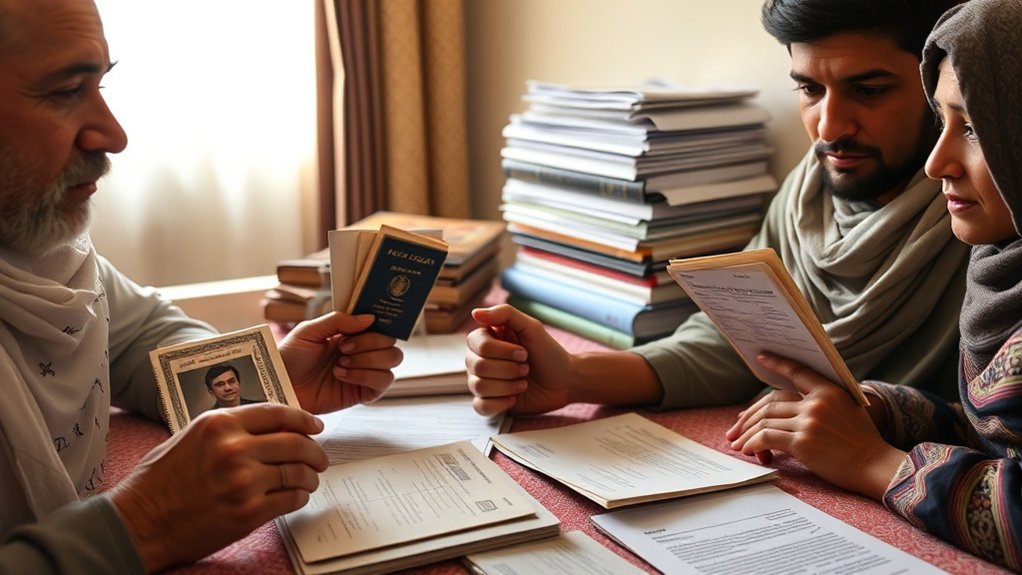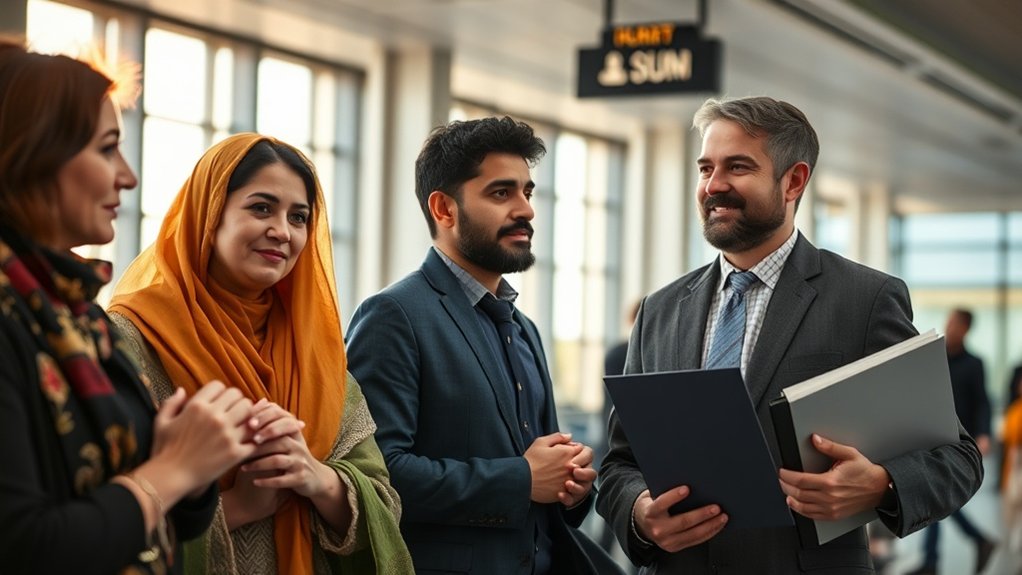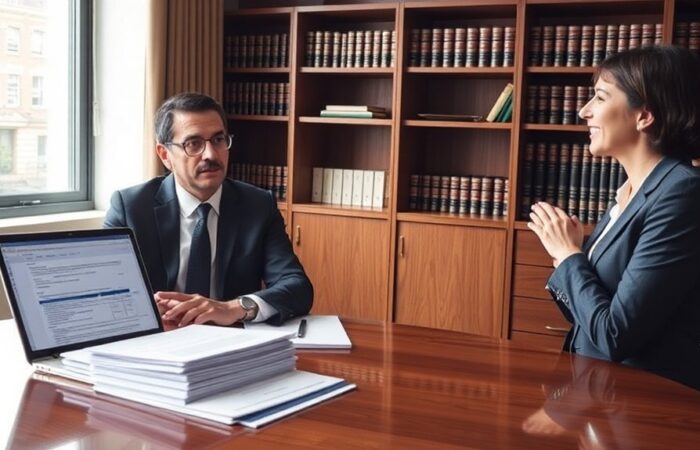If you’re navigating the Afghan family reunification process, you know it’s rarely simple or quick. Vieira Braga Advogados breaks down the steps, timelines, and common hurdles you might face along the way. From compiling evidence to managing interviews, every detail matters–and delays are all too common. Wondering how you can avoid the pitfalls and keep your application moving forward? There’s more you’ll want to understand about each stage in this journey.
Understanding Eligibility for Afghan Family Reunification

Although the process can seem complex, understanding who qualifies for Afghan family reunification is essential before you apply. You need to know exactly which family relationships meet the requirements, since eligibility forms the foundation of your application’s success. Generally, you’re eligible if you’re an Afghan national with legal residency or recognized protection status in your host country.
Family reunification typically covers close relatives. That means your spouse, minor children, and sometimes dependent parents might qualify. Extended family members, like siblings or adult children, rarely meet the eligibility criteria unless there are exceptional, documented humanitarian reasons. Each host country may define “family” differently, so you must check the current regulations specific to your situation.
You’ll also have to prove your relationship with supporting documents—such as birth certificates, marriage certificates, or legal guardianship papers. Confirming eligibility early will save time and frustration, making the rest of the process clearer and more manageable. Consulting a qualified professional can provide legal security at every stage of your family reunification process, reducing the risks of errors or delays.
Step-by-Step Application Process
Once you’ve confirmed your eligibility and gathered the necessary documents, you can start the Afghan family reunification application. Begin by identifying the correct government office or embassy that handles family reunification applications for Afghans. You’ll follow a series of clearly defined steps, with each phase building upon the previous one. Paying close attention to sequence ensures you won’t miss any critical requirements or deadlines. Keep communication channels open with both legal counsel and family members to avoid delays.
Here’s a straightforward breakdown to guide you:
- Complete the official application form, ensuring all details are accurate.
- Submit the initial application to the designated authority, either online or in person.
- Pay any required processing fees upfront, keeping receipts for your records.
- Wait for initial confirmation or reference number acknowledging receipt.
- Respond promptly to any requests for additional information or interviews.
Throughout this process, having professional legal support can help you avoid documentation errors and reduce the risk of missing important deadlines.
Key Documentation and Supporting Evidence

A successful Afghan family reunification application relies on providing clear, thorough documentation that proves your identity, relationship, and eligibility. You’ll need official documents such as passports, national identification cards, or birth certificates for each family member involved in the application. Make sure the documents are legible and, if possible, translated into the required language.
You must also supply proof of your relationship. This could include marriage certificates, birth certificates for children, or family books. If you have photographs, correspondence, or affidavits from community leaders, add them as supporting evidence, especially if official records are missing or incomplete due to conflict or displacement.
Always double-check the requirements for the specific country where you’re applying, as formats and additional documents might differ. Organize your paperwork logically and ensure all translations are certified. Incomplete or unclear evidence can delay your case or even lead to rejection, so pay careful attention to every detail.
To avoid unnecessary delays, it’s highly recommended to work with professionals who are experienced in complex immigration laws to ensure each stage of your submission is accurate and complete.
Average Wait Times and Processing Stages
When you submit a family reunification application, your case goes through several distinct processing stages, each with its own timeline and set of requirements. First, you’ll get a confirmation that your file’s received, which is crucial for tracking progress. Next, officials review your documents for completeness and eligibility. If all is in order, interviews and biometric appointments follow. Then, your case waits in queue for a decision. Processing times can fluctuate, often lasting from several months to over a year, depending on the country and office workload. It’s essential to monitor each stage and respond promptly to any requests. Engaging an immigration lawyer can help you avoid mistakes and handle documentation requirements more effectively throughout these various stages.
Here’s what to expect during the process:
- Application receipt and case number assignment
- Preliminary document and eligibility review
- Interviews and biometric data collection
- Security and background checks
- Final decision and notification on your application
Common Challenges and How to Overcome Them

Even with careful preparation, families often face obstacles that can delay or complicate the reunification process. Incomplete documentation is a frequent issue; missing birth certificates, marriage records, or identity documents often stall applications. You should triple-check all required paperwork before submission to avoid unnecessary delays. Language barriers may cause misunderstandings or errors in forms. If you’re unsure, seek help from a translator or legal expert to ensure accuracy.
Security checks and background verifications can also extend timelines, especially if records are hard to access due to instability in Afghanistan. Prepare all supporting documents ahead of time and stay in contact with relevant agencies. Communication lags or unclear status updates can leave you anxious and uninformed. Make a habit of following up with immigration authorities and document all correspondence. By staying organized, proactive, and informed, you’ll minimize setbacks and improve your family’s chances for successful reunification. Seeking legal advice from an immigration lawyer can further enhance your success by ensuring compliance with all legal requirements and avoiding overlooked issues.
Frequently Asked Questions
Can Reunified Families Access Public Healthcare in Portugal?
Yes, you and your reunified family can access public healthcare in Portugal once you’ve registered as legal residents. You’ll need to get a Número de Utente (healthcare user number) from your local health center. With this, you’ll receive medical care at public hospitals and clinics. It’s important to register soon after arrival so you don’t face any delays in healthcare services. Portugal’s system is generally accessible and affordable for residents.
Are Language Classes Available for Arriving Family Members?
Yes, you can access language classes when you arrive in Portugal. The government and various organizations offer free or low-cost Portuguese language courses to help newcomers integrate. You’ll usually find these classes at public schools, community centers, or integration support offices. Signing up early helps you adjust faster, communicate better, and access work or education opportunities. Don’t hesitate to ask local authorities about available options in your area.
What Housing Support Exists for Newly Arrived Afghan Families?
When you arrive, you can access housing support through refugee resettlement programs, local government agencies, or nonprofits. They’ll help you find temporary accommodation, then assist with longer-term housing options, like rented apartments. If you meet certain criteria, you might qualify for emergency housing or rental subsidies. These organizations also offer advice about leases and landlords, ensuring you understand your housing rights. Reach out early so you don’t face housing challenges alone.
Can Children Attend School Immediately Upon Arrival?
Yes, your children can usually start attending school soon after you arrive. You’ll need to register them with the local school district, and they’ll help you through the process. Schools often offer language support and orientation to help your children adjust to their new environment. Make sure to bring any relevant documents, like identification and vaccination records, because they’ll be needed for enrollment. It’s best to contact the nearest school for specific guidance.
Are Travel Costs Covered by the Portuguese Government?
No, the Portuguese government typically doesn’t cover travel costs for family reunification. You’ll need to pay for flights and any other travel expenses yourself. It’s important to budget for these expenses before starting the process. However, some humanitarian or refugee programs may offer limited financial assistance. Make sure you check with local organizations or NGOs, as they sometimes help families with travel costs in exceptional situations or urgent humanitarian cases.
Conclusion
Navigating Afghan family reunification can feel overwhelming, but understanding the process helps you stay prepared. If you gather all key documents and respond promptly to requests, you’ll avoid unnecessary delays. Remember, every step—from application to interviews—matters for your family’s future. Stay proactive, communicate regularly with immigration authorities, and seek guidance when needed. With patience and perseverance, you’ll improve your chances of a smooth reunification and a brighter path forward together.



